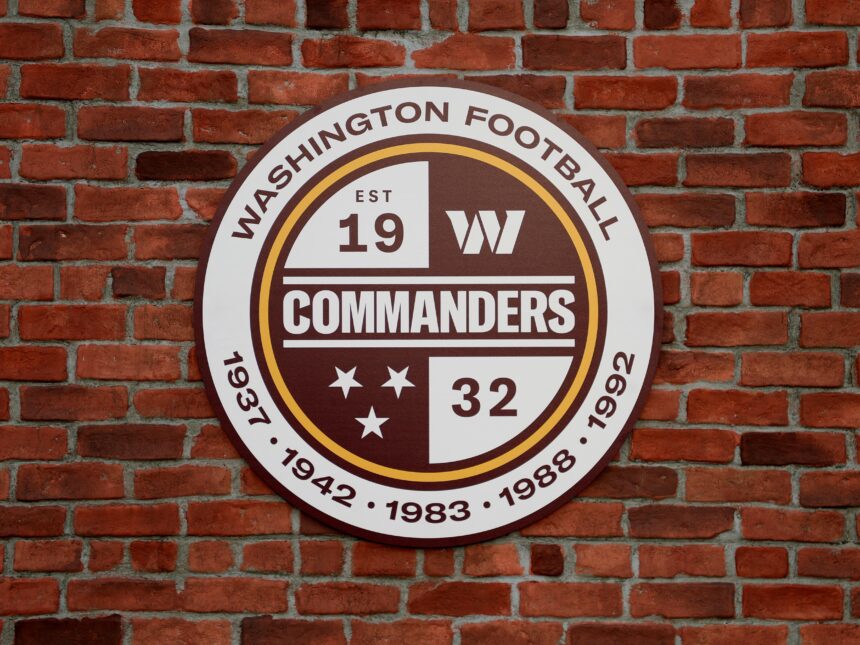Reevaluating the Controversy: The Washington Commanders and Cleveland Guardians Name Debate
Trump’s Call to Restore Former Team Names and Claimed Indigenous Backing
Former President Donald Trump has recently reignited controversy by advocating for the reversal of name changes made by two prominent American sports franchises: the Washington Commanders and the Cleveland Guardians. Trump contends that “our great Indian people” support reinstating the teams’ previous names,which were altered amid nationwide discussions on cultural respect and sensitivity toward Native American communities. He argues that these decisions were made without sufficient input from Indigenous groups, suggesting that many Native voices remain unheard in the ongoing debate.
Trump’s position highlights several key arguments he attributes to Native American supporters:
- Honoring Tradition: The original team names are seen as tributes to longstanding cultural and local histories.
- Symbolism of Strength: Some Indigenous individuals reportedly view the former names as emblems of resilience and pride.
- Resistance to Political Correctness: The name changes are framed as reactions to external pressures rather than authentic Indigenous consensus.
| Team | Previous Name | Current Name | Claimed Indigenous Support |
|---|---|---|---|
| Washington Football Team | Redskins | Commanders | Support for reverting to original |
| Cleveland Baseball Team | Indians | Guardians | Preference for former name |
Historical Background and Cultural Controversies Surrounding Team Names
The names associated with the Washington and Cleveland sports franchises have long been at the centre of cultural and social debates in the United States. The Washington football team, originally known as the Redskins, faced decades of criticism for its name, which many considered offensive and derogatory toward Native Americans. This sparked a broader national conversation about the appropriateness of sports mascots and team names that reference Indigenous peoples.
Similarly, the Cleveland baseball team’s transition from the Indians to the Guardians in 2022 was part of a larger movement to eliminate names and mascots that perpetuate stereotypes or cultural insensitivity. These changes reflect evolving societal values and a growing emphasis on respect and inclusivity in sports branding.
Stakeholders hold varied perspectives on these issues:
- Traditionalists: Advocate for preserving historic names, viewing them as honors to Native American courage and spirit.
- Critics: Argue that such names commodify Indigenous cultures and promote harmful stereotypes.
- Indigenous Communities: Display a spectrum of opinions, with some supporting change and others expressing pride in heritage while opposing derogatory usage.
| Team | Former Name | Current Name | Year of Change |
|---|---|---|---|
| Washington | Redskins | Commanders | 2022 |
| Cleveland | Indians | Guardians | 2022 |
Public Sentiment and Indigenous Perspectives on Team Naming
Opinions on the naming of these sports franchises remain deeply divided. While some fans and commentators emphasize the importance of tradition and brand identity,others prioritize cultural sensitivity and respect for Native American communities. Trump’s recent statements have further polarized the conversation, bringing renewed attention to the issue across political and social arenas.
Indigenous leaders and organizations often present nuanced viewpoints rather than a monolithic stance. Their positions range from advocating for complete rebranding to encouraging broader dialogues about identity, respect, and representation.
| Group | Outlook | Focus |
|---|---|---|
| Indigenous Leaders | Advocate for respect, education, and frequently enough support name changes | Cultural dignity and inclusion |
| Traditional Fans | Wish to maintain historic names due to emotional and cultural ties | Heritage and identity preservation |
| Political Advocates | Often emphasize nationalism and legacy, sometimes supporting name restoration | Patriotism and tradition |
- Social Media Dynamics: Hashtags and campaigns reveal a split between supporters of both preserving and changing team names.
- Polling Data: Surveys show regional and demographic variations, with no definitive national consensus.
- Inclusive Engagement: Increasing efforts to involve Indigenous representatives in naming decisions and policy discussions.
Guidelines for Future Engagement and Naming Decisions
As the conversation around sports team names progresses, it is crucial for all parties—team management, Native American communities, and fans—to foster open, respectful interaction. Collaborative approaches that balance cultural awareness with fans’ emotional connections to team identities are essential.
To facilitate constructive dialogue and decision-making, stakeholders might consider implementing a comprehensive framework that includes:
- Assessment of historical and cultural significance
- Active inclusion of Indigenous voices and advocacy groups
- Engagement with fan bases through public consultations
- Flexible policies allowing for renaming or restoration based on consensus
| Stakeholder | Suggested Action | Expected Outcome |
|---|---|---|
| Team Owners | Establish diverse advisory panels including Indigenous representatives | Improved community relations and trust |
| Native American Leaders | Facilitate cultural education and sensitivity workshops | Enhanced respectful representation |
| Fans | Engage actively in forums and discussions | Balanced respect for tradition and progress |
Looking Ahead: Navigating the Complexities of Sports Team Identities
The ongoing debate over the Washington Commanders and Cleveland Guardians names exemplifies the broader national conversation about cultural respect, heritage, and identity in sports. Former President Trump’s recent remarks underscore the persistent divisions surrounding Native American imagery in team branding. While advocates for change emphasize inclusivity and sensitivity, others call for honoring tradition and legacy.
Ultimately, the path forward requires thoughtful dialogue, mutual respect, and a willingness to embrace diverse perspectives to reconcile the complex interplay of history, culture, and community pride in American sports.
